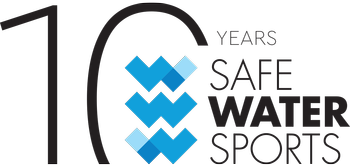
-
10 BASIC RULES OF SPEARFISHING AND FREEDIVING
1. Dive under direct observation of your dive buddy.
This is the main rule. People break it and die. Divers have died while doing quite routine and simple performances while being alone sometimes in shallow waters (at 10meters depth, 5 meters, 3 meters or in at the water’s surface or in pools beside people that do not understand freediving). Yor buddy must be competent, that is being equally capable of diving with you at the same depths and being able of providing first aid in the event that you black out above or below the surface of the water. Direct observation means that someone is observing you from a few meters away throughout every diving attempt.
Tip: When spearfishing use the same spear gun with your buddy. It will help you stick together and to not drift apart focusing on different targets.2. Rest without moving between dives. Rest twice the duration of your last dive.
If you would start a new dive before, this new dive will be much more dangerous than the first one.
Tip: If you follow the previous tip (two buddies diving with the same speargun) you will also be forced to dive alternately with your dive buddy, which will secure a fair time to rest.3. Do not hyperventilate (no deeper/faster breathing). It can lead to black out without warning. 2-3 slow deep breaths is enough as preparation.
This rule has been broken by people that are not alive any more. Any added breathing above the body´s normal breathing will lower the carbon dioxide levels in the blood and the urge to breath might come after you have fainted because of low oxygen.
4. If problems - drop your weights.
Not many do, they rather take the risk, or are already too gone in the head due to low O2, so it does not occur to them that they can drop the weightbelt and get an easy ride to the surface.
There is away around this. Release the belt and hold it in your hand, if you suffer a black out you will drop the weights and instead of losing all air from lungs and sinking you might actually float up instead, if the weights are gone.
Weight yourself positive at 10 meters, at least.5. Do not exhale, or stop on the way up (it enhances the risk of Shallow Water Blackout). Swim straight up.
At the end of the dive and when the pressure decreasses the risk of shallow water blackout increases every second. Do not stay in the risk zone go direct up and breath. Preferably hook breath.
6. Focus on inhaling when you break the surface, Keep breathing (or observing the freediver). Your lowest level of oxygen is 20 seconds after surfacing. Focus on inhaling when you break the surface, only a litre of new air is enough to oxygenate the brain and keep you conscious.
7. Do not go deeper if you feel pressure on your eardrums. Equalize all the time. Accept no discomfort.
Beginners think they shall equalize when they feel pressure. That is wrong. Professionals never feel the waters pressure on the eardrums - they equalize all the time.
8. Secondary drowning (death) may occur up to 24 hours after small amounts of water has entered your lungs.
Water in your lungs will damage the lungs ability for gas exchange. This means less oxygen will enter your blood and you might faint and suffocate. First signs and symptoms consists of agitated breath (even if resting), coughing, headache and more. It is enough with just small amount such as 2-3 deciliters. Death can occur many hours after you stopped diving. You must be taken to hospital for O2 treatment and surveillance.
9. Drink lots of water before a spearfishing/freediving session, do not be too hungry or too full, do not dive when you are cold. Don’t dive with fever, infections, alcohol or drugs in your body e.t.c.
10. Do not freedive after scuba diving, rest more than 12 hours.





